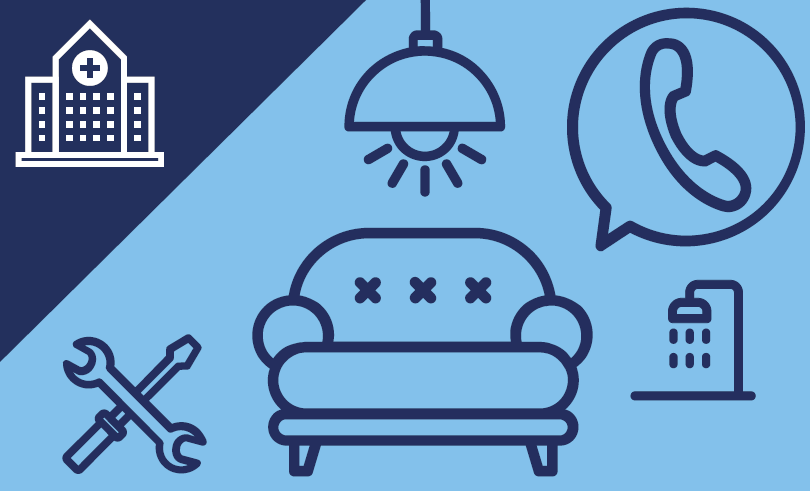New Report: 10,000 patients helped through Hospital to a Healthier Home
Posted: 27.11.2022
Author: jack

Posted: 27.11.2022
Author: jack

Hospital to a Healthier Home (H2HH) is present in 17 hospitals across Wales and works to ensure that patients can be discharged quickly and return to a safe, warm, and accessible home.
The new report reveals that the project has saved the Welsh NHS over 62,000 bed days during the last three years and has had over 10,000 referrals. The report shows that this incredible stat is down to the speed and volume of adaptations the service is able to complete, meaning patients referred to the project stay in hospital on average six days less than those who are not. The report also highlights the role the service plays in reducing readmissions. Patients who have been helped by the project have a 5.7% chance of readmission, compared to a health board average of around 12-15%.
“This new report highlights the crucial role that the project plays in hospitals in Wales. To have had over 10,000 patients referred to us in the first three years of being a Wales-wide project is fantastic and shows the importance of collaboration and partnership in the health sector and why services like these must continue to receive funding”
Hospital to a Healthier Home caseworkers work directly with hospital staff to identify older patients who have housing problems that may delay their return home. Care & Repair teams then work with patients and their families to carry out home improvements needed to enable patients to be discharged quickly and safely.
“What we want is that little bit of additional resource to support at home, and that might be something as simple as a handrail. It’s as simple as that. Historically, we would have to do a social work referral, we would have to then wait for that social worker to be allocated. So, from our perspective, [H2HH] it’s invaluable.”
“The quality [of discharges] is a lot better since we’ve got Care & Repair because there are a lot more checks going on than we would have done and been able to action previously. If you’ve got people with, say, chest problems with damp in their property, that can be changed now, and stops them being readmitted again in the future because of the housing condition. So, it’s a knock-on preventative effect”
The service improves patient flow and reduces re-admissions, saving the NHS in Wales an estimated 25,000 bed days each year.